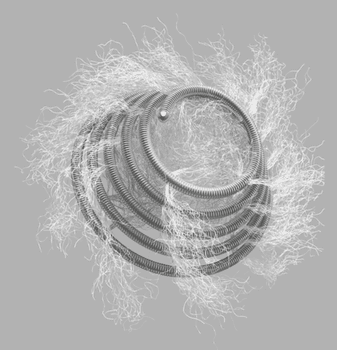Cook Nester and Tornado Coil Problems
Nester and Tornado Coil Risk and Complications Information

Tornado and Nester embolization coils have been found to cause severe and life-threatening problems for many Americans, according to FDA reports and recent lawsuit filings. Critics safe the manufacturer, Cook, Inc., knowingly released a defective medical device which the company has actively marketed and sold without proper warning labels.
Cook Group, which is a medical supply company based in Bloomington, Indiana, chose repeatedly to prioritize profits over product safety and put countless Americans at risk. Meanwhile, the CEO of Cook Group, Carl Cook, has a net worth of over $10.2 billion.
Attorneys handling Cook Tornado and Nester coil lawsuits believe persons and the family members of persons who have suffered from embolization coil problems may be eligible for significant compensation. This page provides a comprehensive look at Tornado and Nester coil problems and side effects.
Cook Nester and Tornado Embolization Coils
Tornado and Nester embolization coils by Cook, Inc. were approved in 2016 to promote embolization, or block blood flow into a weakened wall area in a vein or artery. These medical devices are shaped into coils or springs made of a combination of polymer fibers and metal. Together, the platinum coils and spaced synthetic fibers are designed to aid the body in creating a plug to block blood flow into certain areas to control dangerous or unwanted bleeding.
Coil embolization using Cook Tornado and Nester coils is a surgical procedure guided by imaging. The surgeon uses a catheter to place a small metallic coil in place to strategically block blood flow. After the catheter is placed in the artery or vein and advanced to the target problem area, the metal coil is released. The Tornado or nester coil springs into position, providing a partial obstruction that prompts the body to form a blood clot at the coil site. Nester and Tornado coils are implanted permanently and are intended to stay securely in place without migrating, breaking or corroding.
Cook Nester and Tornado Coil Problems
Lawsuits against Cook, Inc. allege the company has misrepresented health hazards and metal content of Nester and Tornado embolization coils.
In many cases, embolization coil implantation seems successful initially. However, many patients develop severe and life-threatening side effects from Nester and Tornado embolization coils over time. Tornado and Nester coil problems occur when the device becomes dislodged from its intended site, migrating problematically through the body. The metal coils have been found to perforate, or push into, internal organs, nerves, and other tissues.

In other cases, patients have developed reactions to the materials contained in the device. Marketing materials claim Cook Nester and Tornado coils are 100% platinum, but traces of Tungsten have been detected. Cook, Inc. received an FDA warning letter in 2014 for failure to maintain testing standards in its facilities to monitor raw material content.
The FDA warning letter, which came from the Department of Health and Human Services, stated Cook's "devices are adulterated", citing the company's failure to validate the manufacturing process and ensure safety protocols were followed in the inspection of raw materials used in the company's vascular implants. The company was required to rapidly submit a corrective plan to ensure adherence to its own established safety protocols.
As a result of product defects, medical providers have reported the following Cook Tornado and Nester coil problems: severe and chronic pain; bleeding and clotting problems such as emboli, hematomas and hemorrhage; infection, foreign body reactions, and autoimmune problems; ischemia and tissue necrosis; and death.
Specific Nester and Tornado problems reported to the FDA include coils that unraveled, stretched or migrated, causing damage to renal veins, bowels, blood vessels and pelvic floor nerves. These cases required corrective surgery and some left permanent damage. In another case, a coil piece broke off and had to be retrieved. Anyone who has been implanted with a Tornado or Nester embolization coil is at risk for developing these serious side effects.
Cook Fails to Warn of Nester and Tornado Coil Dangers
Cook received FDA approval for its Nester and Tornado embolization coils in 2016 via a fast-track FDA approval process known as 510(k). This is a controversial approval process whereby a new medical device is approved rapidly without typical premarket testing due to its similarity to previously-approved medical devices. As a result, Cook, Ind, did not conduct any formal safety testing for its Nester and Tornado embolization coils.
Manufacturers of medical devices have a responsibility to test for and ensure the safety of their products, and to warn both medical providers and consumers of associated risks. In the case of Cook Tornado and Nester coils, the products were accompanied by implantation instructions that warned of risks to medical providers--making clear that Cook, Inc. executives were aware of the potential risks of organ and tissue damage from its embolization coils. This information was never shared with the public, so consumers were unaware of Nester and Cook coil dangers.
Let Our Cook Nester and Tornado Coil Lawyers Help You
Our attorneys specialize in holding large corporations accountable when they've placed profits ahead of safety. Through settlements and winning verdicts, our attorneys have obtained millions for our clients. Let us help you today.
Nester and Tornado Coil Lawsuits
Filing a lawsuit will allow you to hold the manufacturer accountable for damage it has caused you or a loved one, while also providing real compensation for your medical expenses, suffering and loss. Contact us today for a free consultation.



Austin, TX
Baltimore, MD
Birmingham, AL
Boston, MA
Buffalo, NY
Charlotte, NC
Chicago, IL
Cincinnati, OH
Cleveland, OH
Columbus, OH
Dallas, TX
Denver, CO
Detroit, MI
Fresno, CA
Hartford, CT
Honolulu, HI
Houston, TX
Indianapolis, IN
Jacksonville, FL
Kansas City, MO
Las Vegas, NV
Los Angeles, CA
Louisville, KY
Memphis, TN
Miami, FL
Milwaukee, WI
Minneapolis, MN
Nashville, TN
New Orleans, LA
New York, NY
Oklahoma City, OK
Orlando, FL
Philadelphia, PA
Phoenix, AZ
Pittsburgh, PA
Portland, OR
Providence, RI
Raleigh, NC
Richmond, VA
Riverside, CA
Rochester, NY
Sacramento, CA
Salt Lake City, UT
San Antonio, TX
San Diego, CA
San Francisco, CA
San Jose, CA
Seattle, WA
St. Louis, MO
Tampa, FL
Tucson, AZ
Tulsa, OK
Virginia Beach, VA
Washington, DC
Alaska
Arizona
Arkansas
California
Colorado
Connecticut
Delaware
Florida
Georgia
Hawaii
Idaho
Illinois
Indiana
Iowa
Kansas
Kentucky
Louisiana
Maine
Maryland
Massachusetts
Michigan
Minnesota
Mississippi
Missouri
Montana
Nebraska
Nevada
New Hampshire
New Jersey
New Mexico
New York
North Carolina
North Dakota
Ohio
Oklahoma
Oregon
Pennsylvania
Rhode Island
South Carolina
South Dakota
Tennessee
Texas
Utah
Vermont
Virginia
Washington
West Virginia
Wisconsin
Wyoming